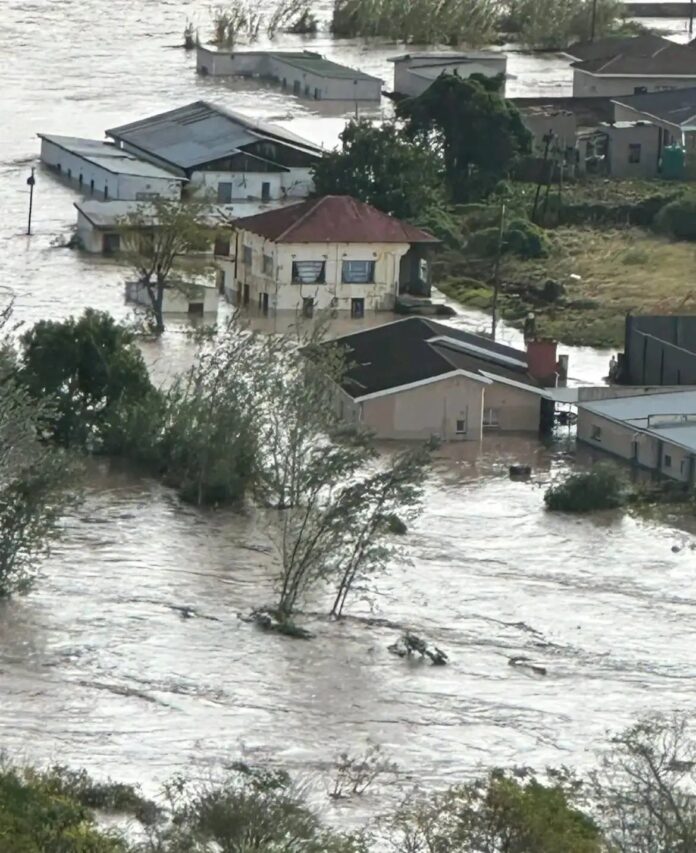The tragic aftermath of the Mthatha floods in June 2025, a natural disaster that has so far claimed in excess of 100 lives, must serve as a crucial wake-up call to all of us in the built environment sector.
When President Cyril Ramaphosa visited the flood-stricken Eastern Cape on 13 June, he rightly described what he saw as “a catastrophic disaster caused by climate change.”
It is estimated that floodwaters reached over four meters high, unthinkable because around this time of the year we should be experiencing a cold spell.
These floods are not the only ones to have happened in South Africa. The KwaZulu-Natal floods in 2022, a disaster that killed more than 400 people and wreaked significant damage, also stand as a grim reminder.
New ways of doing things
A new approach to urban development is in order, considering demographic changes, urbanisation, economic disparities, complexities of service delivery, climate change and the perils of governmental instability and corruption.
Our duty as town planners and built environment practitioners extends beyond design and structure. We need to find innovative ways to address urban development.
Town planners must establish mandatory standards and regulations to steer development, especially focusing on smaller towns and traditional areas, where technical capacity is limited and land use contraventions common.
Let us learn from our past mistakes and make a difference.
As built environment practitioners we must understand that addressing service delivery problems in rural areas requires a refined approach, combining technical expertise alongside a deep comprehension of local socio-cultural dynamics.
We must advocate for fair development and innovative, context-sensitive planning.
Speaking clearly
It is essential to clarify how we communicate with communities by way of technical terms and jargon related to urban development. Transparency, meaningful engagement, and linguistic accessibility are crucial for our goals’ success.
Climate change demands more than just a transition related to energy and carbon emissions; it requires an urban and rural development transition too.
Our duty is to devise adaptive responses in terms of building infrastructure, settlement development, urban management, and housing provision – not for us, but to provide safety for our communities.
Our conversation about climate change must not be limited to intellectual debates. It must be rooted in the local context, inclusive, based on indigenous knowledge systems, and shared using accessible language.
We must include civil society organisations, academics, built environment professionals, regulators, the local government sector, and the South African Local Government Association (SALGA) leadership.
A climate change conversation should be led together with our communities. Sustainable and safer communities should result from engaging with businesses, developers, traditional leadership, communities, and civil society groups.
Impact on lives
The Mthatha floods have once again highlighted that the built environment has a tangible impact on the daily lives of every South African.
Town planners carry the responsibility of addressing the imbalances caused by colonial policies on spatial apartheid geography.
The role of town planners is especially important when it comes to urban and rural development, as well as reshaping the fragmented apartheid spatial geography.
This disaster serves as a stark reminder that town and regional planning must not be ignored, sidelined or subjected to undue political or commercial pressures.
Town planners bear the responsibility of assisting the country in reimagining the communities of the future, embracing innovation, and utilising new technologies during the rebuilding efforts.
This is a chance to create opportunities for young professionals to engage with communities and contribute to finding solutions to the challenges we face.
Now more than ever, it is vital for town planners to work in communities diligently and engage with communities from a perspective of mutual learning not as experts, but taking the lead in developing safe, sustainable infrastructure and creating climate-resilient settlements.
All hands on deck
I strongly encourage decision-makers, political leaders, and community members to take heed of the valuable technical guidance provided by town planners.
This is not only a call for everyone to take climate change seriously, but also a sincere plea for the built environment sector and developers to collaborate closely with government to restore normalcy and improve our surroundings.
Dr Msizi Myeza – Chief Executive Officer of the Council for the Built Environment (CBE)



